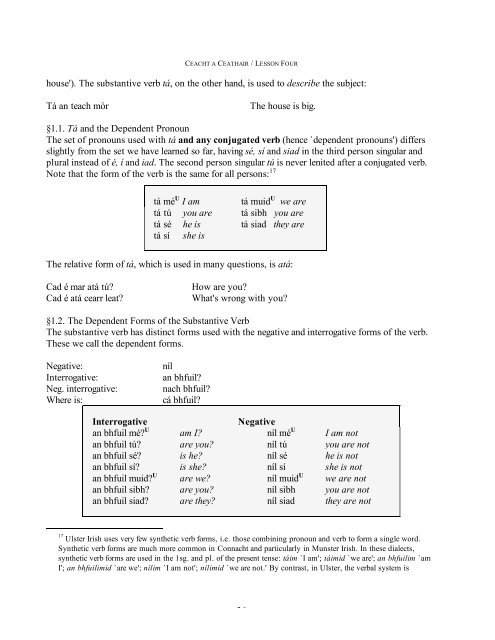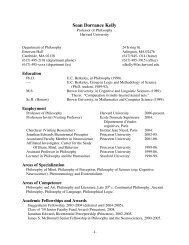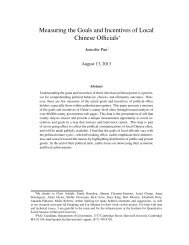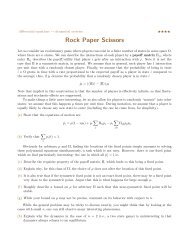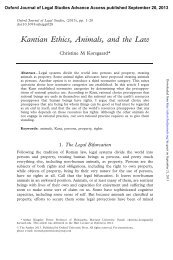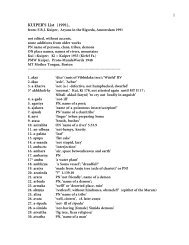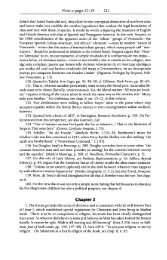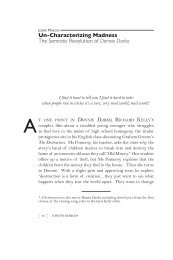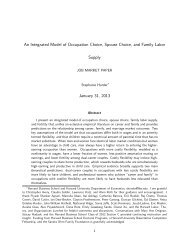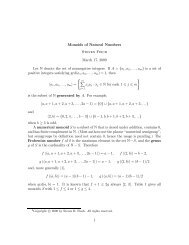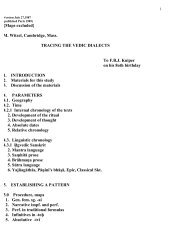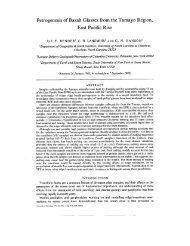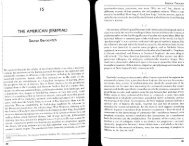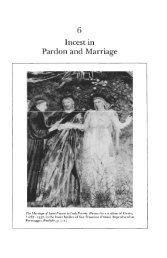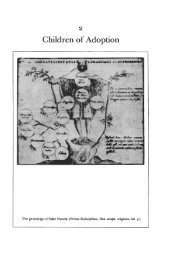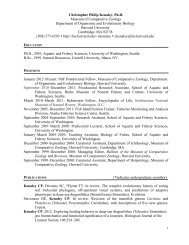Buntús na Gaeilge - People Fas Harvard - Harvard University
Buntús na Gaeilge - People Fas Harvard - Harvard University
Buntús na Gaeilge - People Fas Harvard - Harvard University
Create successful ePaper yourself
Turn your PDF publications into a flip-book with our unique Google optimized e-Paper software.
CEACHT A CEATHAIR / LESSON FOUR<br />
house'). The substantive verb tá, on the other hand, is used to describe the subject:<br />
Tá an teach mór The house is big.<br />
§1.1. Tá and the Dependent Pronoun<br />
The set of pronouns used with tá and any conjugated verb (hence `dependent pronouns') differs<br />
slightly from the set we have learned so far, having sé, sí and siad in the third person singular and<br />
plural instead of é, í and iad. The second person singular tú is never lenited after a conjugated verb.<br />
Note that the form of the verb is the same for all persons: 17<br />
The relative form of tá, which is used in many questions, is atá:<br />
Cad é mar atá tú? How are you?<br />
Cad é atá cearr leat? What's wrong with you?<br />
§1.2. The Dependent Forms of the Substantive Verb<br />
The substantive verb has distinct forms used with the negative and interrogative forms of the verb.<br />
These we call the dependent forms.<br />
Negative: níl<br />
Interrogative: an bhfuil?<br />
Neg. interrogative: <strong>na</strong>ch bhfuil?<br />
Where is: cá bhfuil?<br />
tá mé U I am tá muid U we are<br />
tá tú you are tá sibh you are<br />
tá sé he is tá siad they are<br />
tá sí she is<br />
Interrogative Negative<br />
an bhfuil mé? U am I? níl mé U I am not<br />
an bhfuil tú? are you? níl tú you are not<br />
an bhfuil sé? is he? níl sé he is not<br />
an bhfuil sí? is she? níl sí she is not<br />
an bhfuil muid? U are we? níl muid U we are not<br />
an bhfuil sibh? are you? níl sibh you are not<br />
an bhfuil siad? are they? níl siad they are not<br />
17 Ulster Irish uses very few synthetic verb forms, i.e. those combining pronoun and verb to form a single word.<br />
Synthetic verb forms are much more common in Con<strong>na</strong>cht and particularly in Munster Irish. In these dialects,<br />
synthetic verb forms are used in the 1sg. and pl. of the present tense: táim `I am'; táimid `we are'; an bhfuilim `am<br />
I'; an bhfuilimid `are we'; nílim `I am not'; nílimid `we are not.' By contrast, in Ulster, the verbal system is<br />
36


